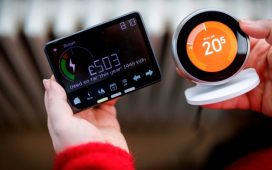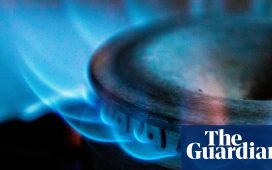Europe’s heat pump market has hit a slump, industry data shows, holding up the continent’s efforts to heat its homes without polluting the planet.
Manufacturers in most markets sold fewer heat pumps in 2023 than they did the year before, according to the lobby group European Heat Pump Association (EHPA). Total sales fell 5% over the 14 countries for which data exists, bucking a trend of accelerating growth that peaked in 2022 when Russia’s invasion of Ukraine sent gas prices soaring.
Thomas Nowak, head of the EHPA, called on the EU to put together a promised action plan to build more heat pumps and install more of them in buildings.
Heat pumps, which act like refrigerators in reverse, use electricity to move untapped energy indoors. Their sales last year dropped 36% in Italy, 42% in Finland and 46% in Poland as gas prices fell and interest rates rose. Governments in some member states also cut support.
Newly released figures from the UK, which were not included in the EHPA calculations, show sales of the device grew 4% last year.
Germany, which saw heat pump sales jump 59% in 2023, was also one of six EU countries in which the market grew. The EHPA said this was partly a hangover from high demand the previous year, when orders could not be filled and customers were left waiting months to have heat pumps installed. The effect had run its course by the second half of 2023, the EHPA said.
The European slump in sales “is an extremely challenging setback for the EU’s efforts to decarbonise heating,” said Duncan Gibb, an analyst at clean energy thinktank Regulatory Assistance Project.
The European Commission aims to have about 60m heat pumps by the end of the decade but the current pace of installations – about 3m a year – will only get it to about 45m by then, said Gibb. “The EU needs a rapidly growing heat-pump market, not a shrinking one,” he said.
after newsletter promotion
The industry has also been frustrated by the European Commission’s decision to delay an action plan that was due to come out in the first quarter of 2024. The EU will appoint new commissioners after European elections in June, in which right-wing parties more hostile to climate action are projected to make big gains.
The main concern from business is the inability to plan and forecast because of the lack of clarity around policy from the commission, said Rowena Rodrigues, from Irish heat pump maker Glen Dimplex. “The fact that we have a slowdown this year does not have to be the end of the world. But we need to understand what is coming next.”
New heat pump models are three to five times more energy efficient than gas boilers but cost more to buy upfront. The International Energy Agency said heat pumps are “the central technology in the world’s transition to secure and sustainable heating” but meet just 10% of the global heating need in buildings.
In some countries, heat pumps have also become unlikely fuel for culture wars. The boxes – which have become the main source of heating in countries such as Norway with little controversy – have been the subject of intense media attacks and disinformation campaigns in countries including Germany and the UK.











